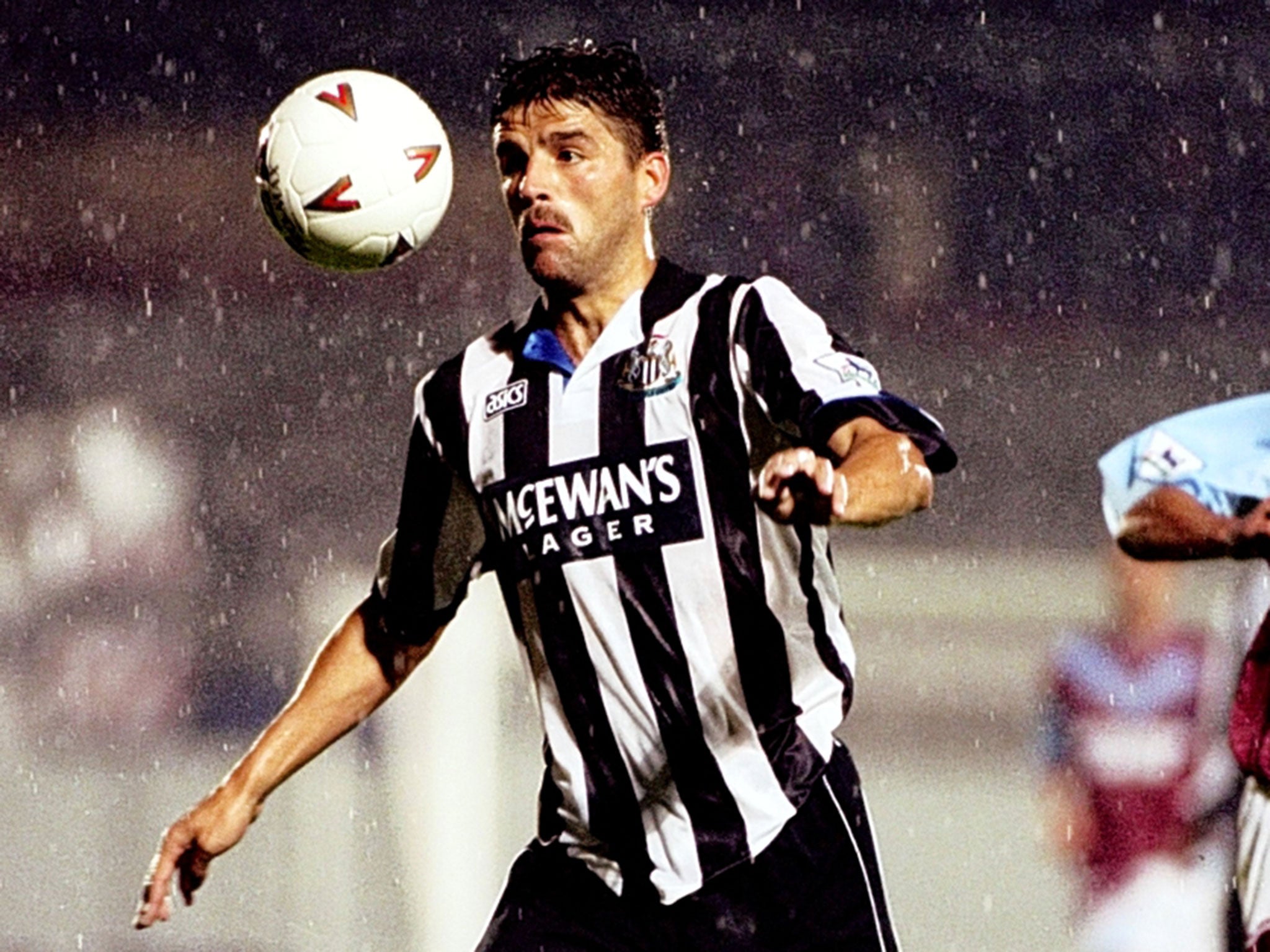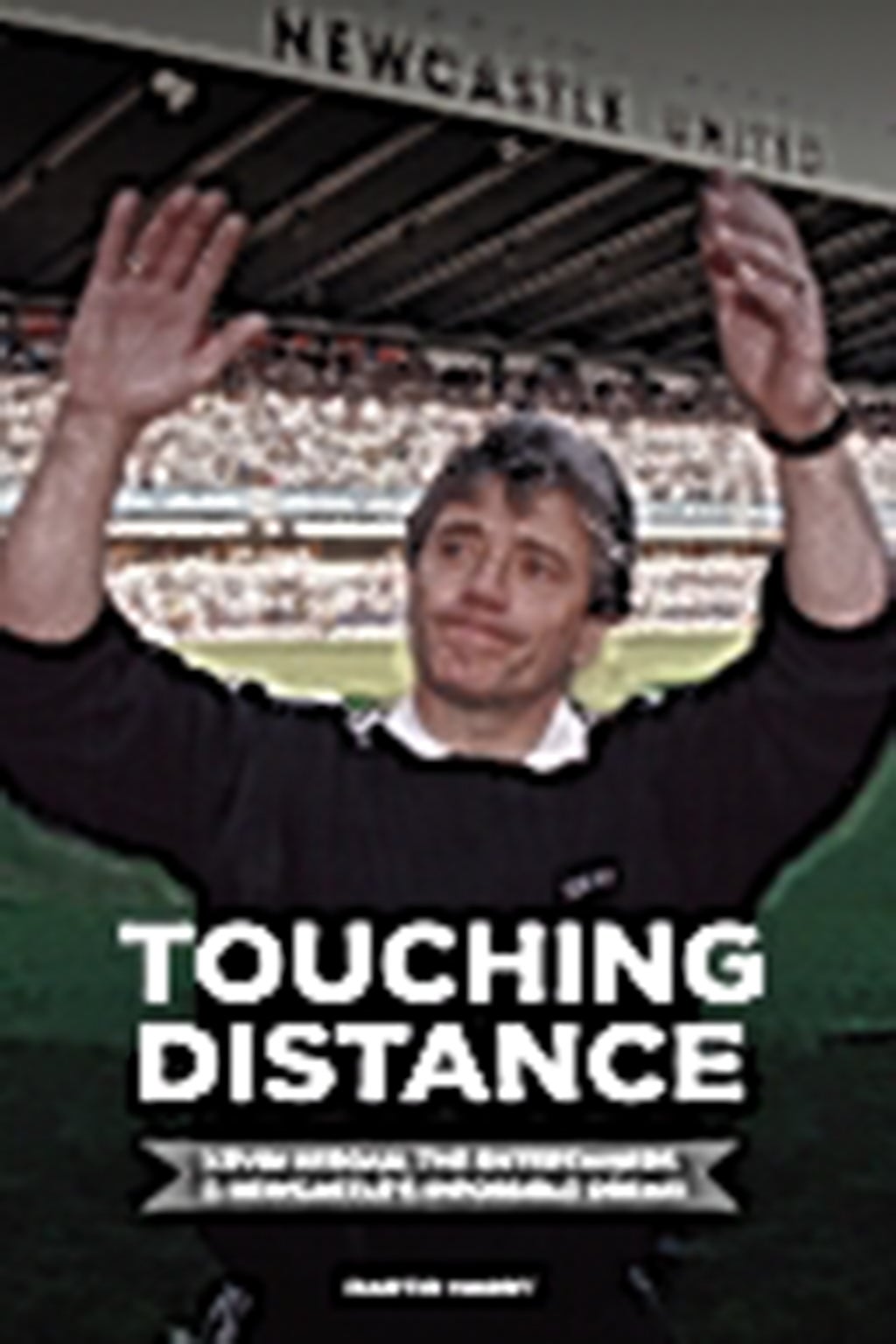Newcastle vs West Ham: When Prince Philippe Albert was ruler of a united kingdom
As Newcastle stare into the abyss, Martin Hardy speaks to a player who remembers a time when the club still had a strong connection to its fans and harboured hopes of success

Your support helps us to tell the story
From reproductive rights to climate change to Big Tech, The Independent is on the ground when the story is developing. Whether it's investigating the financials of Elon Musk's pro-Trump PAC or producing our latest documentary, 'The A Word', which shines a light on the American women fighting for reproductive rights, we know how important it is to parse out the facts from the messaging.
At such a critical moment in US history, we need reporters on the ground. Your donation allows us to keep sending journalists to speak to both sides of the story.
The Independent is trusted by Americans across the entire political spectrum. And unlike many other quality news outlets, we choose not to lock Americans out of our reporting and analysis with paywalls. We believe quality journalism should be available to everyone, paid for by those who can afford it.
Your support makes all the difference."I think it’s along there." The taxi drive had taken 45 minutes, from the Gare de Charleroi-Sud station, through the city's unforgiving centre, to a landscape littered with reminders of its industrial past, until finally the satnav informed us we had arrived.
At the end of a short path that dissected the neighbouring two houses, a 6ft 4in man stood behind the gates with his hands tucked deep in his pockets. Behind him, a horse was running in the field.
“You all right?” he asked. “Good trip? Come in.”
Behind the door of the detached house was a framed 3ft-square picture. Inside it, the badge of Newcastle United Football Club. “I paid £200 for that at an auction,” says Philippe Albert.
Later, in the front room, above the two golden boots he won for being the best player in Belgium, I spot another framed photograph, of St James’ Park, with the inscription “The home of Newcastle United”. It is 16 years since Albert played for Newcastle.
“You talk about Newcastle and Kevin Keegan and I get goosebumps, right here, all the way up my arm,” he says.
When Albert talks about Newcastle it is a team that had the city’s heartbeat inside the black-and-white stripes.
He moved to Tyneside from Anderlecht in 1994 for £2.65m. “We went to Leeds and had a meeting,” he adds. “Kevin was there. I was very impressed with him. I was a little bit nervous. We talked about football for an hour and then we talked about money for two minutes. Money wasn’t important to me.
“The fact was that Keegan, the manager of Newcastle United, who had finished third in the league the season before, wanted to sign me. When a club like this comes, if you say no, you are crazy.
“Yeah, I had watched them the season before. At that time finishing third in the Premiership was big news and people were talking about Keegan and Newcastle as well. I went to Leeds, I said, ‘OK.’”
The centre-half would be part of the Newcastle team in the 1995-96 season that came so close to being the champions of England for the first time since 1927. Like the players of that era, he is still revered on Tyneside. On 19 June, Albert will appear at the Lancastrian Suite in Dunston. There will still be adoration. “I’ve always considered myself as a working-class person,” he told me. “My father worked in a factory from when he was 14.
“When I went out in Newcastle and people didn’t recognise me, I didn’t say, ‘I’m Philippe Albert, I’m not queuing to get in here.’ I never did it and I will never do it because that is the way I was educated by my parents.
“The fact the fans were working very hard during the week and then coming to the game with season tickets is not cheap. You want to give something back to these people. That’s what we did. Even away from home, people used to like us. Even when we went to Liverpool, people liked the way Newcastle was playing.
“At home, people were very happy, very glad and after the game, they had seen goals and a good match. That is the most important for those people.”
My interview with Albert is one of many with the players and management staff of that time at Newcastle United, for a book, called Touching Distance, about the period when Keegan breathed life into a city and an ailing football club.
Newcastle were on their knees back then as well, in 1992, when he returned as manager, eight years after a successful spell as a player. Keegan reinvigorated a city. He made it believe in itself.
The team Keegan and the club’s chairman, Sir John Hall, assembled came from all quarters. Every player that represented Newcastle back then – Pavel Srnicek, Rob Lee, David Kelly, Darren Peacock, Warren Barton, Les Ferdinand, Keith Gillespie, Tino Asprilla and many more – spoke of their love for the city and the club. It was never, ever seen as a stepping stone.
“I go there for five days a year maybe,” Srnicek told me in the Prague restaurant he now dines in with the Sparta players he coaches. He will speak to Newcastle fans in Whitley Bay on 4 June. “It is not enough. The city is in my heart. You cannot put it anywhere else.”
Tomorrow, if Newcastle, who face West Ham at St James’, cannot match the result of Hull at home to Manchester United, they will be relegated for the second time in six years. The temporary head coach, John Carver, admitted before the derby with Sunderland last month that he could not tell the players how important the game was for fear of putting pressure on them. He has questioned the recruitment policy and whether more importance should be given to the character of those joining. No one has taken responsibility for the mess.
It has not always been like this. When Newcastle moved with the heartbeat of their support, anything seemed possible. Now there is only fear that their team do not have enough to beat a side who have scored one goal in their previous five away games.
Whether they cling to their Premier League status or not tomorrow, Newcastle are a lost football club.

‘Touching Distance’ by Martin Hardy, published by deCoubertin Books, priced £18.99, is out in July.
Join our commenting forum
Join thought-provoking conversations, follow other Independent readers and see their replies
Comments